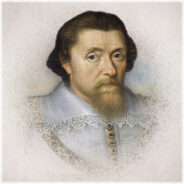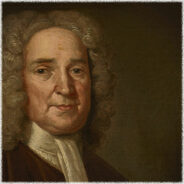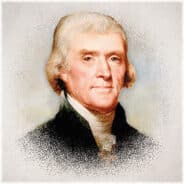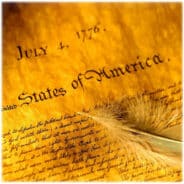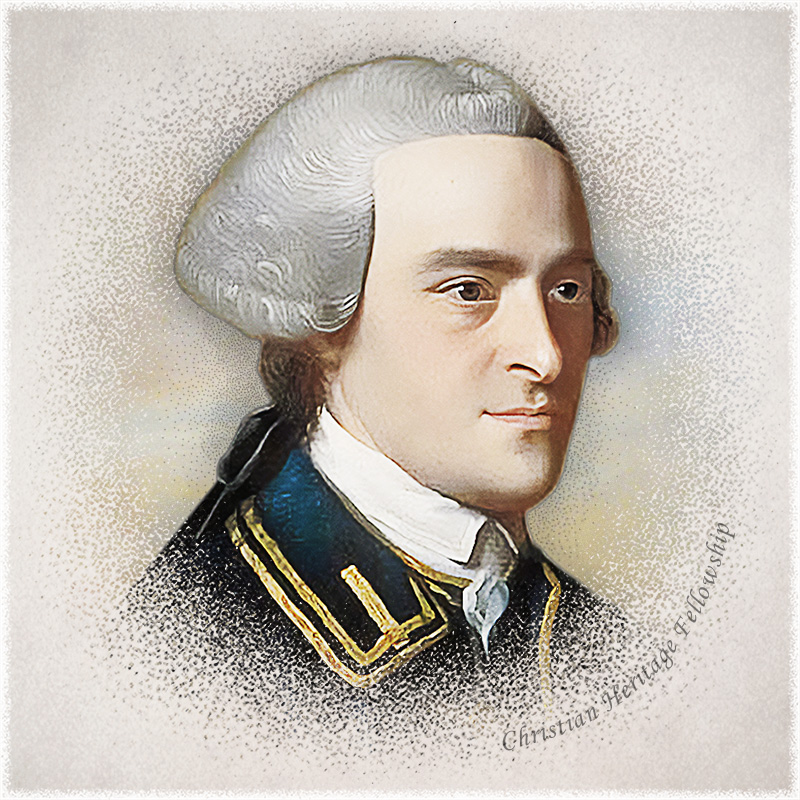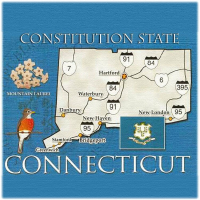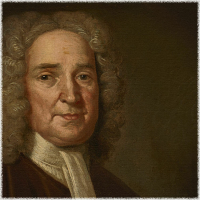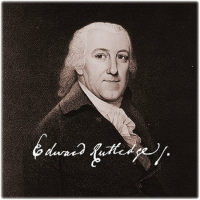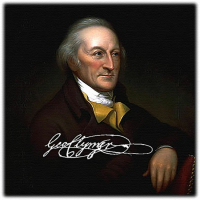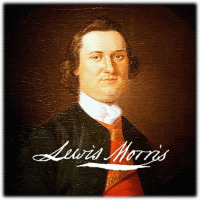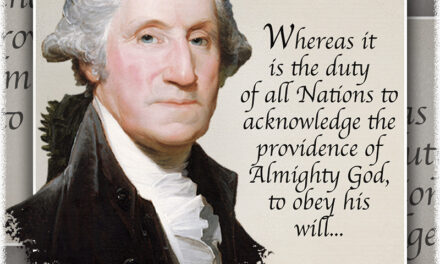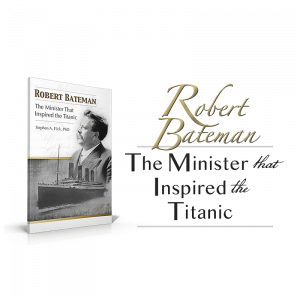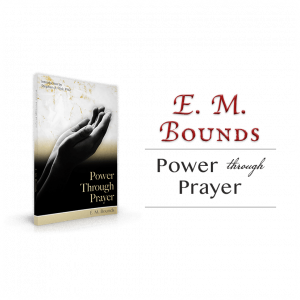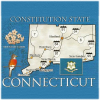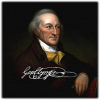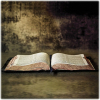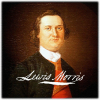The Christian Setting of the Declaration of Independence
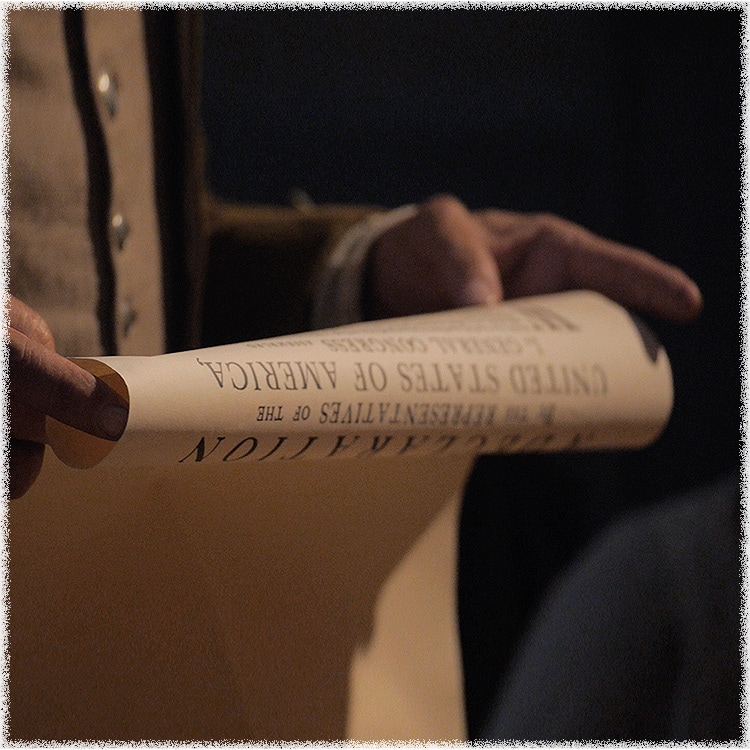
For nearly a century, America's Christian origin and the character of her Founding Fathers have been under attack from irreligious and Marxist nemeses. Pointing to half a dozen Founding Fathers (out of nearly 250), America's Marxist and irreligious adversaries allege prominent Founding Fathers sought to establish a purely irreligious or secular state. But in fact, Congress aggressively sought to ban irreligion (Journals of the Continental Congress, 16:252-253).[1] There is absolutely no evidence to suggest the Founding Fathers attempted to establish the first of America's organic laws (the Declaration of Independence) upon an irreligious foundation. The evidence against the notion of an irreligious foundation of America is irrefutable.Christian Setting of the Declaration of Independence
Article ContentsChristian Setting of the Declaration of Independence
Christian Setting of the Declaration of Independence
No colonies or subsequent states were irreligious. Prior to and following July 4, 1776, all English patents, charters, and subsequent state constitutions bore allegiance to the Christian faith. The first charter granted by King James I was issued on April 10, 1606 to the Virginia Company—in large part—for the purpose of "propagating the Christian religion." Upon breaking with England, American "states" were forced to construct new constitutions or, like Connecticut, continue under a governing document from the colonial era—which in the case of Connecticut was shaped by Rev. Thomas Hooker. On September 28, 1776, Benjamin Franklin—as president of Pennsylvania's constitutional convention—signed that state's first constitution which legislated a Christian test for members of Pennsylvania's assembly: "And each member, before he takes his seat, shall make and subscribe the following declaration, … [namely] : 'I do believe in one God, the Creator and Governor of the Universe, the Rewarder of the good and the Punisher of the wicked. And I do acknowledge the Scriptures of the Old and New Testament to be given by Divine Inspiration.'"[2] —and Pennsylvania was only one of two colonies that never had a state church!
Congress was not irreligious. From June 1775, to August 1784, the Continental and Confederation Congresses issued sixteen spiritual proclamations calling upon the states to invite citizens to days of fasting, prayer, and thanksgiving. George Washington ensured the spiritual proclamations of Congress were observed by his troops. Most Americans will be startled to realize Thomas Jefferson acted in cooperation with Patrick Henry and others to introduce such spiritual proclamations in his home state of Virginia on June 1, 1774.[3] Any Sunday school class will be deeply benefited by a study of these sixteen Congressional proclamations which were heavily ladened with Christian theology.
The subject addressed in this article is discussed at greater length in When Congress Asked America to Fast, Pray, and Give Thanks to God. Christian Heritage Fellowship would be honored to work with individuals, businesses, churches, institutions, or organizations to help communicate the truth concerning the positive influence of the Christian faith by providing bulk pricing: Please contact us here... To purchase a limited quantity of this publication, please click: Purchase here...
The most influential ideas were not irreligious. King George III referred to the American Revolution as a "black-robe" rebellion because of the black clerical attire worn by many pastors. Nothing could be more descriptive of the influence the Christian clergy wielded over the rise and progress of the American Revolution. In his book, Seedtime of the Republic,[4] distinguished scholar, Clinton Rossiter, identified six leading voices of the Revolution, four of which were Christian ministers. And, after studying thousands of original sources from the founding era, political science Professor, Donald Lutz (in The Origins of American Constitutionalism)[5] , demonstrated that the Bible was the single greatest source for the ideas and ideals that gave rise to the American Republic. In fact, the ideas of the Declaration of Independence were first advocated by prominent ministers such as Thomas Hooker and John Wise.
Christian Setting of the Declaration of Independence
Thomas Jefferson was not irreligious—and was certainly not a Deist! In a brief article titled, "Notes on Religion," written in October 1776, Jefferson summarized his views on the Christian faith. What was his view concerning the origin of the Bible? As he states, he believed "the [human] writers were inspired" by God, and for this reason, the Bible possessed authority concerning "the fundamentals of Xty[Christianity]." Because the following excerpt was written only three or four months after Jefferson had acted as the chief penman of the Declaration of Independence, the first of America's four most important legal documents was written by a Christian layman in support of orthodox Christian teaching. This means that as the author of the Declaration of Independence, Jefferson held a high view of Scripture—higher than what is often presently held by many liberal and "evangelical" pastors throughout America and many parts of the world. It is also worth noting that he believed Jesus Christ was "our Savior" and the teaching of the Apostles' Creed contained "all things necessary to salvation."[6] Mr. Jefferson also planted a "Reformed" church near his home in Virginia. It is true that following his wife's death (1782), he was eventually influenced by what came to be known as Unitarianism, but as primary author of the Declaration of Independence, there is every evidence he was an orthodox Christian.
The Declaration of Independence
The Declaration of Independence was not irreligious. In the first two paragraphs of the Declaration, Mr. Jefferson, asserted that both the rights of nations and individuals were derived from a religious foundation. The right "of the thirteen united States of America" to exist "among the powers of the earth" was dependent upon "the Laws of Nature and...Nature's God" who established those laws. Further, Mr. Jefferson also posited individual human rights upon a religious source: "We hold these truths to be self-evident, that all men are created equal, that they are endowed by their Creator with certain unalienable Rights, that among these are Life, Liberty and the pursuit of Happiness." That any judge should be permitted to deny students the right to study the Founding Fathers' understanding of the source of human government via the "Creator" should be an impeachable offense.
Most Americans are unaware that the first two individuals to sign the Declaration of Independence after Congress had approved it were the son and grandson of Christian ministers and a Bible scholar.
The third president of Congress was Peyton Randolph, who had served as the First President of Congress the previous year.[7] As in the case of the First Continental Congress, Mr. Randolph was called away from this office by extenuating personal circumstances, having only served from May 10 to May 23, 1775. By unanimous consent of Congress, John Hancock was chosen to succeed Randolph to the presidency, serving his first term in that office from May 24 to October 31, 1777.[8] Like Randolph, Hancock also served a second term as President of Congress from November 23, 1785 to June 5, 1786.
Americans have remembered John Hancock as the first signer of the Declaration of Independence—a right duly reserved for him as President of Congress. However, secular attempts to remove the awareness of America's Christian origin have successfully removed a little-known fact about this wealthy patriot. John Hancock was the son and grandson of Christian ministers.[9] Given this little-known biographical fact, it is entirely appropriate that the son and grandson of Christian ministers should be the first to sign a congressional request to all the Colonies represented in Congress calling for a day of fasting and prayer. Less than three weeks after assuming the presidency of Congress, John Hancock was the first to sign such a proclamation.
The second and last person to sign the Declaration of Independence on July 4, 1776 was the secretary of Congress, Charles Thomson. To further refute the notion that America's Founding Fathers were secular or irreligious, some insight into the relationship that Thomas Jefferson sustained to Charles Thomson will prove instructive.
In a letter to Thomson, Jefferson asked to assist him in the publication of one of the first Bibles to be printed in America—still commonly known as the "Thomson Bible." It was a four-volume Bible titled, The Holy Bible, Containing the Old and New Covenant, Commonly Called the Old and New Testament: Translated from the Greek.[10] Thomson had held the office of Secretary of the Congress from the inception of the Continental Congress to the formation of the new government under the Constitution—that is, from 1774 to 1789. In addition to his political contributions to America's independence and his "Thompson Bible," he also penned an important theological works such as, A Regular History of the Conception, Birth, Doctrine, Miracles, Death, Resurrection, and Ascension of Jesus Christ.[11] In his January 11, 1808 letter, Jefferson asked to contribute financially to the publication of Thomson's Bible:
The gap between the republican form of government of America's Founding Fathers and irreligious Marxist socialism cannot be bridged. The Founding Fathers believed that the rights of governments and individuals were God given and were irrevocable. Socialists, on the other hand believe, rights are ultimately granted by the government and may be revoked at the whim of government. Despite the fact that America has not always lived up to the standards of its Christian origin, its record as the world's oldest republic speaks volumes over the here-today, gone-tomorrow governments of irreligious socialism.
Christian Setting of the Declaration of Independence
America deserves to know its true heritage.
Please contribute today!
[1] Journals of the Continental Congress, 1774-1789, 34 vols. (Washington, D.C.: Government Printing Office, 1904-1937), 16:252-253. Orthography updated and emphasis added "to banish vice and irreligion from among us."
[2] "American Minute with Bill Federer," April 17, 2015.
[3] Derek Davis, Religion and the Continental Congress, 1774-1789: Contributions to Original Intent (New York: Oxford University Press, 2000), 84.
[4] Clinton Rossiter, Seedtime of the Republic: The Origin of the American Tradition of Political Liberty (New York: Harcourt, Brace, 1953).
[5] Donald S. Lutz, The Origin of American Constitutionalism (Baton Rouge: Louisiana State University Press, 1988).
[6] Emphasis added. Thomas Jefferson, The Works of Thomas Jefferson, ed. Paul Leicester Ford, 12 vols. (New York: G.P. Putnam's Sons, 1904), 2:254-55.
[7] Journals of the Continental Congress, 2:12.
[8] Journals of the Continental Congress, 2:58-59.
[9] Dictionary of American Biography, s.v. "Hancock, John."
[10] Charles Thomson, The Holy Bible, Containing the Old and New Covenant, Commonly Called the Old and New Testament: Translated from the Greek, 4 vols. (Philadelphia: Printed by Jane Aitken, 1808).
[11] David Barton, "Aitken Bible," WallBuilders (http://www.wallbuilders.com/libissuesarticles.asp?id=46, November 20, 2013).
[12] Jefferson, Works of Thomas Jefferson, 11:6-7.

